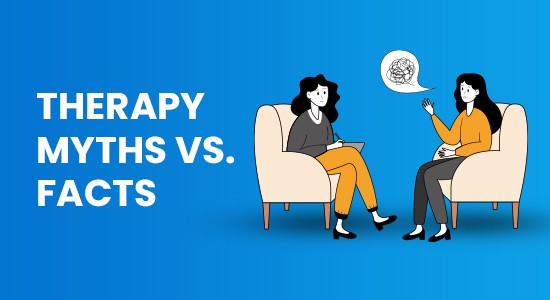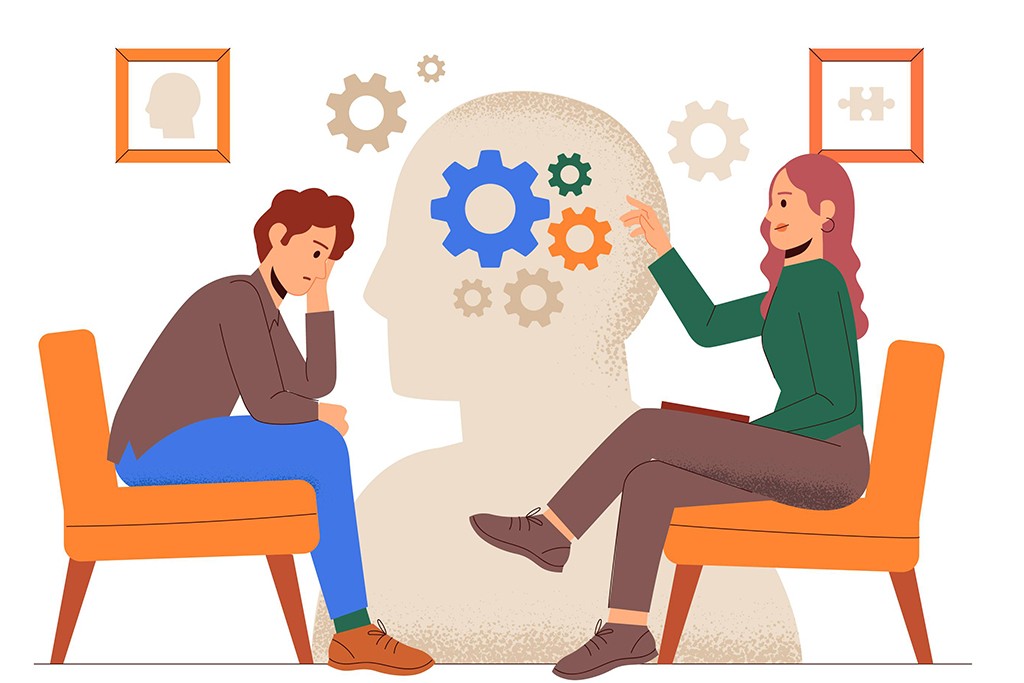THERAPY MYTHS VS. FACTS
Therapy, also known as counseling or psychotherapy, is often surrounded by misconceptions that can discourage people from seeking help. Let’s address these myths and provide accurate information about therapy.
- Myth: Only severely mentally ill people need therapy.
Fact: Therapy is not limited to individuals with severe mental illnesses. It can benefit anyone facing challenges or seeking personal growth, helping them cope with stress, improve relationships, manage emotions, and enhance overall well-being.

- Myth: Therapy is a sign of weakness.
Fact: Seeking therapy is an act of strength and self-care. It shows courage and a willingness to address difficulties, just like visiting a doctor for physical health concerns. Therapy is about taking care of mental and emotional well-being.
- Myth: Therapists only listen and offer generic advice.
Fact: Therapists are trained professionals who use various techniques tailored to individual needs. They create a safe space for exploration, collaborating with clients to develop personalized strategies and insights to address specific concerns.
- Myth: Therapy is a never-ending process.
Fact: Therapy duration varies based on individual needs and goals. While some issues can be resolved in a few sessions, others may require longer-term support. Therapy is a dynamic process that evolves over time.
- Myth: Therapy is only for adults.
Fact: Therapy benefits individuals of all ages, including children, adolescents, and older adults. Therapists specialize in different age groups and adapt their approaches accordingly, promoting healthy emotional development and preventing future difficulties.
- Myth: Therapists can “fix” your problems.
Fact: Therapists offer guidance and tools for individuals to navigate their challenges, but personal growth and change are ultimately the responsibility of the individual. Therapists empower clients to develop coping mechanisms and make positive changes.
- Myth: Therapy is only for individuals, not couples or families.
Fact: Therapy is valuable for couples and families experiencing relationship difficulties or communication issues. Couples therapy enhances relationship dynamics, while family therapy addresses conflicts, improves understanding, and strengthens bonds.

- Myth: Therapy is too expensive.
Fact: While therapy can involve costs, it’s important to see it as an investment in mental health. Many therapists offer flexible payment options, reduced rates, or accept insurance coverage. Low-cost or free therapy options are also available through nonprofit organizations and community centers.
Therapy is a valuable resource for personal growth, support, and improved mental health. Understanding the truth about therapy helps debunk myths and encourages individuals to consider this beneficial form of professional assistance. Seeking therapy is a proactive step toward a healthier and more fulfilling life.


